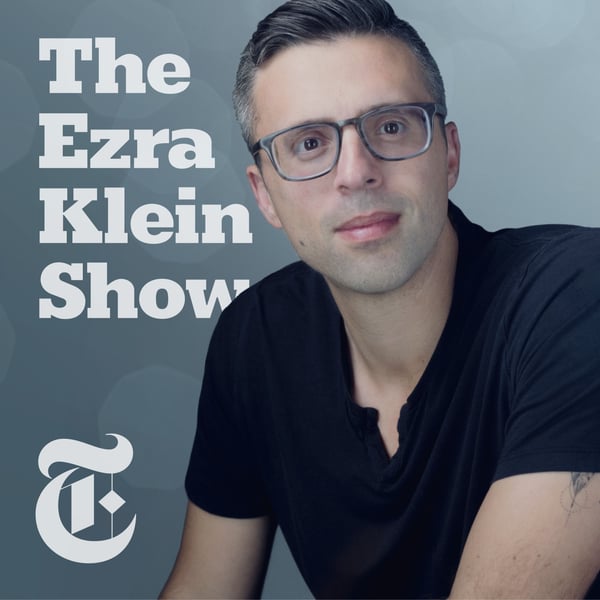Noam Chomsky’s Theory of the Good Life
The Ezra Klein Show
New York Times Opinion
4.6 • 11K Ratings
🗓️ 23 April 2021
⏱️ 73 minutes
🧾️ Download transcript
Summary
Transcript
Click on a timestamp to play from that location
| 0:00.0 | I'm Mr. Klein and this is the Ezra Pancho. |
| 0:19.6 | The first political book I ever received was 9-11 by Noam Chomsky. |
| 0:23.5 | My older brother gave it to me just a little bit after 9-11 and I read it and I reread it |
| 0:28.2 | and I argued with people over it and then over the years I would dip into the Noam Chomsky |
| 0:33.5 | library and just always it's breath is so astonishing. |
| 0:38.9 | Noam Chomsky, he's written more political books than I can count and politics isn't even |
| 0:42.8 | his main research interest. |
| 0:44.2 | He's a pioneering linguist who put that entire field on new footing. |
| 0:48.3 | He's done very important work as a media theorist. |
| 0:50.6 | He's made waves in the artificial intelligence world. |
| 0:53.6 | It's really a remarkable example of a mind just continually at work. |
| 0:57.6 | It's still true, Chomsky is 92 and he's still writing books and giving interviews and |
| 1:02.4 | trying to make his dent in the world. |
| 1:05.3 | If you just know Noam Chomsky as a symbol of a certain kind of leftism or as a critic |
| 1:09.5 | of American imperialism, you're going to miss a lot. |
| 1:12.7 | There's a coexistence in his arguments of the world he wants to build and then the |
| 1:16.3 | urgency of what needs to change right now, which includes compromising. |
| 1:20.4 | He's a utopian thinker but a very pragmatic actor. |
| 1:23.3 | He spent much of 2020, for instance, trying to convince the left to vote for Joe Biden. |
| 1:28.1 | He says he's a conservative when it comes to social change and you'll hear that here. |
| 1:31.5 | There's a resistance in his thinking to making sweeping pronouncements about how things |
| 1:36.2 | should or will work in his ideal world because he doesn't think that's how change can |
... |
Please login to see the full transcript.
Disclaimer: The podcast and artwork embedded on this page are from New York Times Opinion, and are the property of its owner and not affiliated with or endorsed by Tapesearch.
Generated transcripts are the property of New York Times Opinion and are distributed freely under the Fair Use doctrine. Transcripts generated by Tapesearch are not guaranteed to be accurate.
Copyright © Tapesearch 2025.

